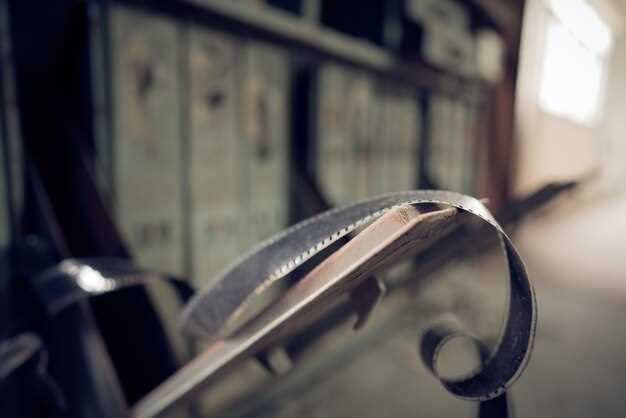
The world of limited-edition classic cars is a fascinating realm where history, craftsmanship, and passion converge. Enthusiasts and collectors alike are drawn to these automobiles not only for their aesthetic appeal but also for their potential to appreciate in value over time. Understanding the nuances of valuing rare models requires knowledge about their unique characteristics, production numbers, and historical significance.
Limited-edition cars are often produced in small quantities, making them highly sought after by collectors. These vehicles tend to embody advanced engineering innovations and distinctive design features, setting them apart from their mainstream counterparts. When assessing the value of such edition cars, several factors come into play, including provenance, condition, and market demand. Each of these elements can dramatically impact the car’s worth, influencing both buying and selling decisions.
This valuation guide aims to provide insights into the intricate process of determining the worth of rare and limited-edition classics. By delving into market trends, key performance metrics, and collector preferences, we hope to equip readers with the knowledge necessary to navigate this exciting and dynamic field. Understanding the valuation landscape not only enhances one’s appreciation for these exceptional vehicles but can also lead to more informed investment choices in the thriving world of classic car collecting.
Assessing Market Trends for Limited Edition Cars
The market for rare and limited edition cars has seen significant fluctuations over the years, influenced by various factors such as economic conditions, collector interests, and technological advancements. In recent years, the demand for these unique vehicles has surged, primarily driven by a growing appreciation for automotive artistry and historical significance.
One of the key trends affecting the valuation of limited edition cars is their rarity. Cars that are produced in limited numbers often become desirable collectibles, leading to increased demand among enthusiasts and investors. Notably, iconic models from prestigious manufacturers typically appreciate in value more rapidly than others, as their scarcity and heritage enhance their appeal.
Moreover, market trends are also shaped by the evolution of the collector base. Younger collectors are increasingly entering the market, bringing fresh perspectives and credit to the value of modern classics. Their interests tend to skew toward limited-run models that feature innovative technology or unique design elements, which were not as appreciated by previous generations.
The impact of auction results and sales data cannot be understated when assessing market trends. High-profile auctions frequently set benchmarks, revealing which models command higher prices. Limited edition cars that have secured record sales create a ripple effect, elevating the perceived value of other similar models in the market.
Additionally, factors such as brand reputation and historical significance play substantial roles in market assessment. Cars associated with notable events or figures tend to capture the collective imagination, contributing to their desirability. Limited editions with racing pedigree or those tied to special anniversaries often yield higher returns.
The state of the economy also plays a critical role in the valuation of rare cars. During economic downturns, luxury items, including limited edition cars, may struggle to maintain their value. Conversely, in a thriving economy, there is often increased liquidity among collectors, enabling higher bids and lengthy valuations.
Finally, as climate concerns grow, the market for limited edition cars, particularly those with combustion engines, may face pressure. Collectors are beginning to consider the sustainability of their investments, leading to a potential shift towards electric or hybrid models in the future. Understanding these evolving market dynamics is essential for anyone looking to navigate the landscape of rare and limited edition cars.
Key Factors Influencing the Value of Rare Vehicles

Understanding the value of rare and limited-edition cars requires a comprehensive analysis of several essential factors. Each element plays a significant role in determining the overall worth of these unique automobiles.
- Rarity: The fewer units produced, the more valuable a vehicle typically becomes. Limited production runs create a sense of exclusivity.
- Condition: The state of a car is paramount. Original paint, maintenance history, and overall preservation directly impact its market value.
- Provenance: The history of ownership, including notable previous owners, can enhance desirability. Cars with interesting backstories or connections to famous personalities often fetch higher prices.
- Performance and Engineering: Technical specifications, such as horsepower, handling capabilities, and innovative engineering, contribute to a car’s appeal, especially among enthusiasts.
- Market Trends: Economic conditions and collector demand can sway values. Trends in the collector car community often dictate what models gain traction and which lose value.
- Historical Significance: Vehicles that represent significant milestones in automotive history, such as iconic designs or technological advancements, tend to have greater value.
- Documentation: Having comprehensive documentation, such as original manuals, service records, or factory build sheets, can positively affect a car’s value.
- Brand Reputation: Cars from manufacturers with a strong legacy of excellence and performance often command higher prices in the market.
These factors, among others, interact to create a complex valuation landscape for rare and limited-edition cars. Collectors should thoroughly research and assess these elements to accurately gauge the worth of their prized possessions.
Resources for Authenticating and Valuing Classic Cars

When it comes to rare and limited-edition classic cars, accurate authentication and valuation are crucial for collectors and enthusiasts alike. Various resources can aid in this process, ensuring you make informed decisions.
Firstly, professional appraisal services offer a reliable way to determine the value of a classic car. These experts evaluate factors such as the car’s condition, originality, and market demand. Look for appraisers with certifications from recognized organizations, as they follow standardized practices and provide comprehensive assessments.
Additionally, classic car auction results can serve as a practical reference for valuation. Many auction houses publish results, including sale prices and detailed descriptions of the vehicles sold. Observing recent auction trends helps you gauge the current market value of rare and limited cars.
Online platforms and databases are also valuable resources. Websites such as Hagerty and Classic.com compile data on classic car sales and offer valuation tools. These platforms feature valuation guides that reflect market fluctuations, historical data, and auction results, providing a comprehensive overview of classic car values.
Another essential resource is the vehicle’s documentation. Verifiable history, including previous ownership, maintenance records, and factory specifications, plays a critical role in authenticating a car’s pedigree. Documents such as the original title and build sheets can significantly enhance value and authenticity.
Engaging with classic car clubs and forums can also provide insights from fellow collectors who share their experiences. These communities foster knowledge exchange about authentication processes, valuation trends, and best practices for preserving rare cars.
Ultimately, combining these resources will yield a thorough understanding of both the value and authenticity of rare and limited-edition classic cars. Leveraging professional services, historical data, and community knowledge will facilitate informed decisions in any classic car pursuit.




